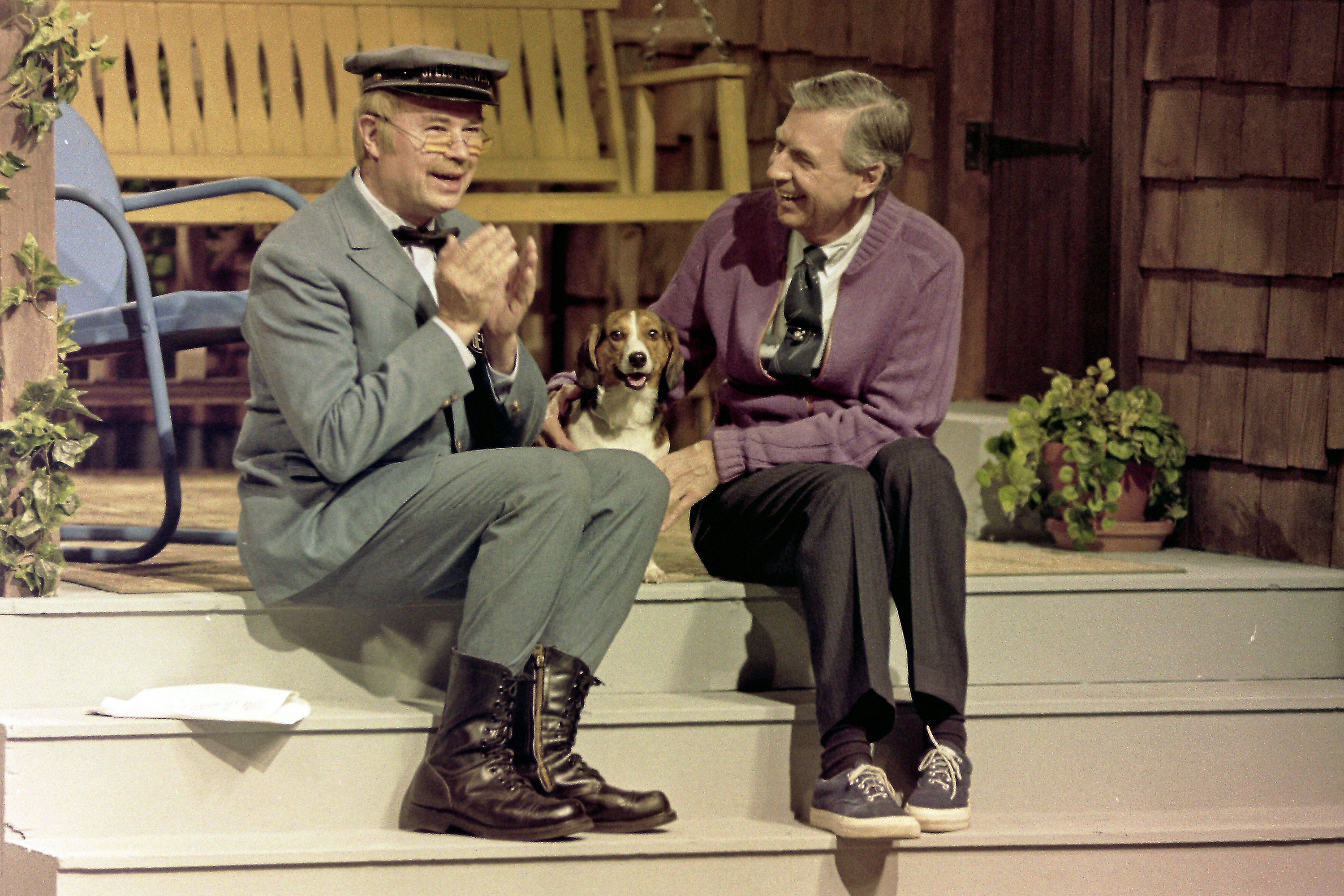‘Won’t You Be My Neighbor’: Chicago’s Daniel Knox Takes On The Music Of Mr. Rogers
By Jason Marck, Libby Berry

‘Won’t You Be My Neighbor’: Chicago’s Daniel Knox Takes On The Music Of Mr. Rogers
By Jason Marck, Libby BerryChicago musician Daniel Knox is known for his deep voice, wit and dark humor. But his new album is also full of gentle kindness — and pays tribute to an unlikely hero.
On You Are My Friend: The Songs of Mister Rogers, Knox offers straight, soothing renditions of the most beloved songs from Mister Rogers’ Neighborhood, including “Won’t You Be My Neighbor,” “Many Ways To Say I Love You” and “Scary Mad Wishes.”
“I really didn’t want to make these really big arrangements or anything too nostalgic,” Knox said. “I just wanted to get his music and lyrics across.”
Reset caught up with Knox to learn more about the project and how music can help us cope with these difficult, often scary times.

On what inspired him to make a Mr. Rogers cover album
Daniel Knox: I had to kind of break from the songwriting that I had been doing for many years and decided to live in kind of a different voice and world as a way of getting away from what I had been doing already. That sort of started with an album of songs from David Lynch’s Twin Peaks and moved into this. I actually think they kind of make an interesting companion with each other. David Lynch and Fred Rogers have a lot in common. You wouldn’t think they do, but I mean listen to them both talk. They’re both very compassionate people, and they live in their imagination and they’re very encouraging sort of people. Just their encouragement kind of comes at a crossroads, I think, at some point.
On melding Rogers’ musical style with his own
Knox: Fred Rogers songs deal in a kind of compassion that I think my songs are maybe concerned with from a different angle. There’s definitely a sense of surrender when you are playing someone else’s music. There’s a balancing act that happens where you have to decide how much of yourself is going in and how much of yourself is being left out. And at a certain point that, you know, if you’re connecting with the song, that balance just becomes kind of automatic and instinctual.
I think if you love the material enough, it’s really easy to live inside of it. … It’s sort of like being in a play. And when you’re performing in a play, I think you can’t help but bring some of yourself to the role, but you have to be faithful to the text. And I think that’s what I tried to do here. … I feel like too many people sort of put their own kind of cute spin on what [Mr. Rogers] does. And to me, I felt like his songwriting deserves every bit of respect as someone like Cole Porter or George Gershwin.


On Rogers’ honest approach
Knox: One of the things that I loved about Mr. Rogers is just how direct that he is. A lot of children’s music and children’s programming, I always felt, and I felt this when I was a kid, too, that it was too concerned with silliness or moralizing. It was always telling you what was right or what was wrong, and I think he didn’t do that. He really kind of spoke directly to his audience without being condescending, and he didn’t deny or dismiss negative feelings. He talked about things like guilt and lonesomeness and confusion. And he talked about them like things that are just there, not like things you should avoid or things that are scary. He just talked about them as a part of life.
When I was a kid, I really hated being told to cheer up, you know? Kids are so often asked to put their emotions away, and really, that’s kind of the best time to put your emotions on display and examine them and ask yourselves where they’re coming from. The fact that these songs deal in those emotions and sort of normalize them is something that I think is really unique in songwriting.
On how Rogers’ musical message can help during challenging times
Knox: There’s parts of it, of course, that resonate to me. I think my solution to what’s going on right now would probably be far less compassionate than Fred Rogers. Maybe we need that more in life, right? Maybe we need more compassion. We need more Fred Rogers.
This interview has been edited for brevity and clarity. Click the “play” button to hear the entire conversation.